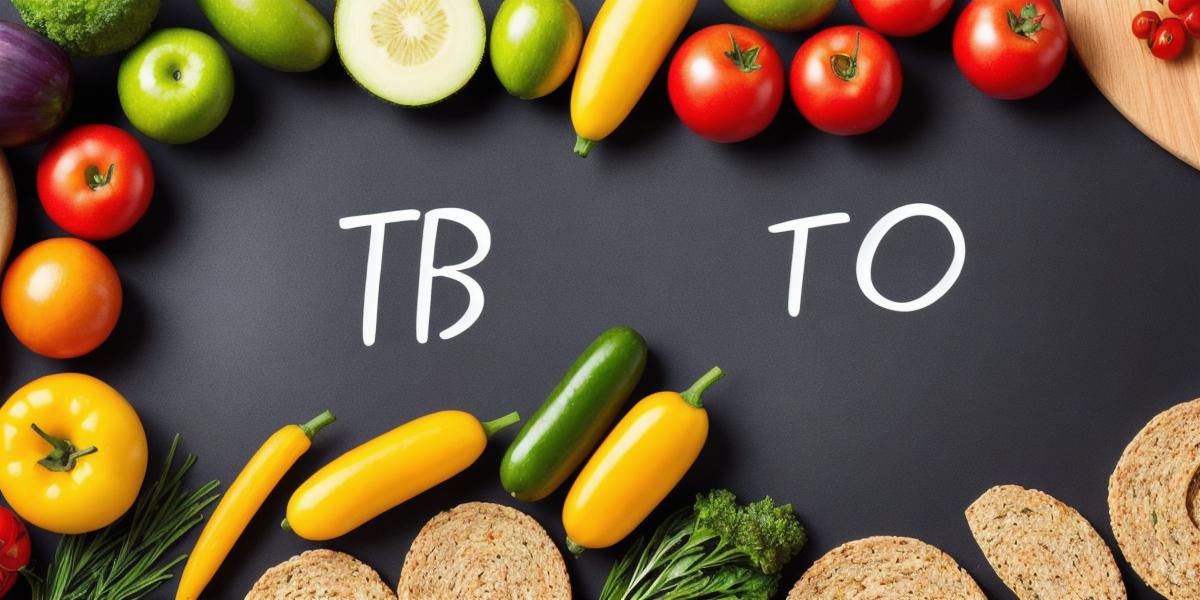How to Avoid FBT: A Comprehensive Guide for Health and Wellness
Flexitarianism, or a mostly plant-based diet with occasional meat, is gaining popularity as a healthy and sustainable way of eating. However, many people find it difficult to maintain this lifestyle due to various factors such as taste preferences, cultural background, and lack of knowledge on how to prepare plant-based meals. In this article, we will provide tips and strategies to help you avoid FBT and make the transition to a healthier and more sustainable way of eating.
- Start Slowly: Don’t Jump into It Too Quickly
It’s essential to start slowly when adopting a new dietary lifestyle. Begin by incorporating one or two plant-based meals per week, gradually increasing the frequency as you become more comfortable with the change. This approach will help you avoid feeling overwhelmed and allow you to develop healthy habits over time.
- Experiment with Flavors
Many people believe that a plant-based diet lacks flavor and variety. However, with some creativity in the kitchen, you can create delicious meals that are both healthy and satisfying. Try new spices, herbs, and seasonings to add depth and complexity to your dishes. You can also experiment with different cooking methods such as grilling, roasting, or sautéing to enhance the flavor of your plant-based meals.
- Plan Your Meals Ahead
Planning your meals ahead is crucial when adopting a new dietary lifestyle. Take some time each week to plan out your meals and snacks, incorporating a variety of plant-based options such as fruits, vegetables, whole grains, legumes, and nuts. This approach will help you avoid making unhealthy choices and ensure that you have balanced and nutritious meals throughout the day.
- Join a Support Group or Community
Joining a support group or community can be helpful when transitioning to a plant-based lifestyle. You can connect with like-minded individuals who share your goals and receive encouragement and advice from those who have successfully made the switch. Many communities also offer cooking classes, meal planning workshops, and other resources to help you make the transition more manageable.
- Consult a Nutritionist or Dietitian
If you’re unsure about how to meet your nutritional needs on a plant-based diet, consider consulting a nutritionist or dietitian. They can provide personalized guidance and advice on how to ensure that you’re getting the right amount of essential vitamins, minerals, and other nutrients from your food choices.
FAQs: Frequently Asked Questions
Q: Can I still eat meat if I follow a flexitarian diet?
A: Yes, a flexitarian diet allows for occasional meat consumption. However, it’s essential to focus on plant-based meals as the foundation of your diet and limit your meat intake.
Q: How do I ensure that I’m getting enough protein on a plant-based diet?
A: Plant-based sources of protein include beans, lentils, tofu, tempeh, nuts, seeds, and whole grains. It’s also essential to consume a variety of protein-rich foods throughout the day to ensure that you’re meeting your daily protein needs.
Q: Do I need to take supplements if I follow a plant-based diet?
A: In most cases, a well-planned plant-based diet can meet all of your nutritional needs without the need for supplements. However, it’s essential to ensure that you’re getting enough vitamin B12, which is only found in animal products, and consider taking a vitamin D supplement if you don’t get enough sun exposure.
Conclusion
In conclusion, adopting a flexitarian diet can be a healthy and sustainable way of eating, but it requires careful planning and support.
